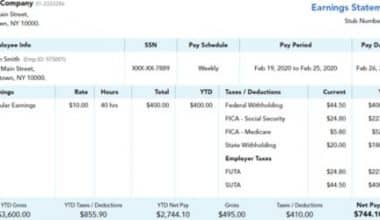Construction managers are meticulous thinkers. They are aware that there is always more they can learn to improve processes and drive their respective businesses forward. Even though these people have good instincts, they still need more than that. Many matters will inevitably require their attention, and they need to be able to persevere without being overwhelmed. Unfortunately, many construction businesses fail every month, so the manager’s aptitude for planning and preparation must be strong.
If you’re on this career path, your first building project will test you in multiple ways. You should do your best to be prepared for most of them, while also being open to the prospect of surprises and adapting under pressure.
Here are four factors to consider when planning your first building project.
#1. Maintaining a Watertight Budget
Building projects obviously can’t go ahead without money. Therefore, the financial side of things should be impeccable before any further moves are made.
Every building project will have various budgeting requirements. Some of the things you might need to account for include:
- Surveying, consulting, and testing fees
- Building permit charges and securing any necessary planning permissions
- The influence of inflation
- Insurance costs
- Recruiting new staff and subcontractors, with the potential to move them
There may be many more expenses to consider as well. The project budget will also need to be reviewed over time, so try not to perceive this as a one-off process. If partnerships, economic circumstances, or staff rosters change, amendments may need to be made.
A good budget can be a reliable roadmap, serving as the foundation for all your planning needs. It’s important to collaborate on the budget, too, as colleagues may have valuable suggestions to make.
#2. Know Where Available Resources Are
The construction industry has faced many difficulties securing supplies. While some turbulence may be expected occasionally, you should try to draft a handy list of suppliers who are less likely to fall short of your expectations.
A worthy name for inclusion is Hanson, an aggregates supplier that can address many of your needs around materials. Their crushed rock, gravel, and sand come from various depots, wharves, and quarries and are distributed by water, road, and rail. Because they’re so versatile in their operations, you’re unlikely to encounter painstaking disruptions.
Hopefully, your list of primary suppliers will be short but sweet. Try to gravitate toward businesses that are specialists in multiple sectors and have a wide array of offerings. It’s important not to be overwhelmed on your first building project, so the numbers of contacts need to be controlled, even when you’re securing resources.
That said, it could also be a good idea to have backup names if emergencies arise and contacts are unavailable. After all, part of planning is accounting for every eventuality, and it’s in your best interests to do so.
#3. Know Health and Safety Responsibilities
When planning construction work, health and safety should be of great importance. There can be a lot of pressure to get things right here, but the stress may not always be necessary.
Requirements around health and safety can vary, depending on the situation. After all, health and safety duties can be assigned to multiple people for the duration of a construction project. Try not to assume these burdens are yours to bear only.
The client, design teams, and other entities like specialist contractors and suppliers may have their own input regarding your site’s health and safety. They must be consulted regularly. You should also comply with HSE guidance and review the laws and regulations you must follow. It’s important to communicate these priorities to your colleagues and ensure that they relay these standards.
Other circumstances may influence health and safety considerations. What impact will there be on public rights of way for the duration of construction? Will nearby facilities be affected? Are cables overhead or underground likely to present problems?
#4. Setting Responsible Timeframes
Many mistakes in construction can be avoided if realistic parameters for success are drawn up first. Rushed projects can lead to botched jobs, so all of your workers need a healthy amount of time in which they can ensure a job well done.
What are the key milestones in your project? Do your colleagues agree that your proposed targets are achievable? Have you given yourself enough time to make adjustments if any work from subcontractors isn’t meeting the desired standards?
You must be honest with yourself and others about your skills as a construction manager. You’re new to the process, and you should remember that. There’s no penalty for operating within your means, and you should run a site that is relative to your level of skills and experience. Failure will be inevitable if you take on too much.
Conclusion
There can be a lot of pressure when managing your first construction project. It’s vital to remember that you’re not alone. Utilize the talent you have at your disposal, ask for support when you need it, and try to set reasonable working conditions for yourself and others. Everything else should fall into place soon after.






